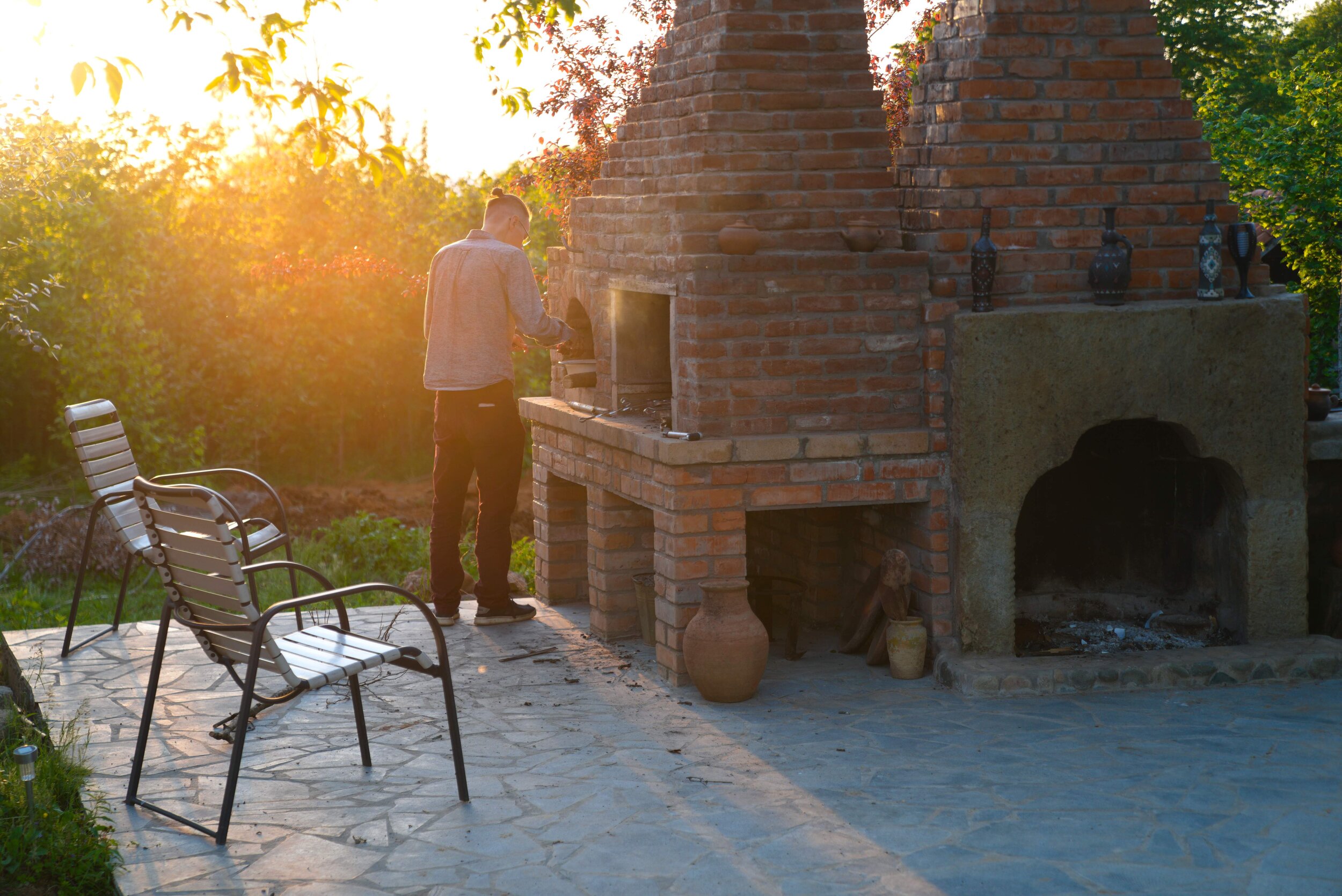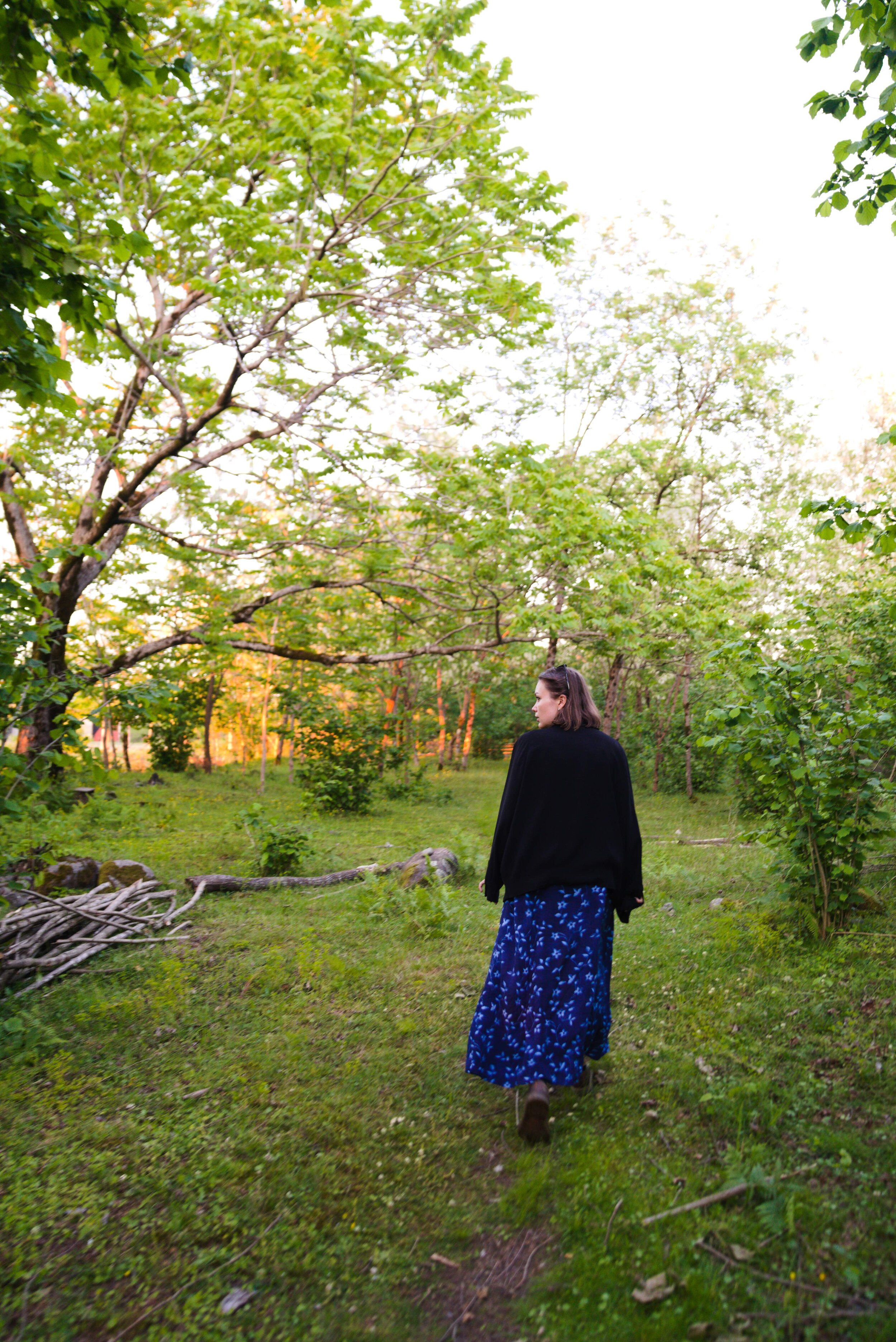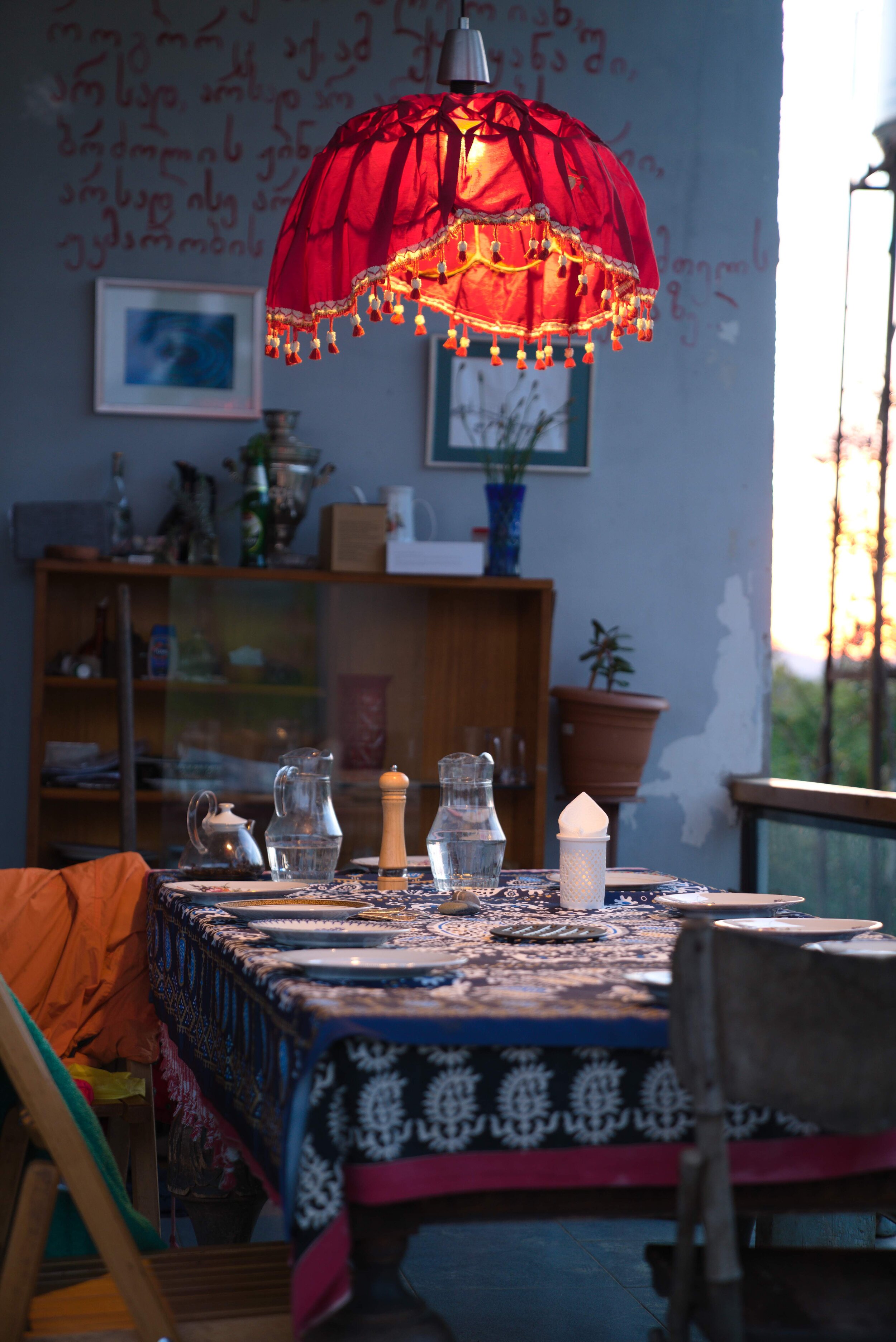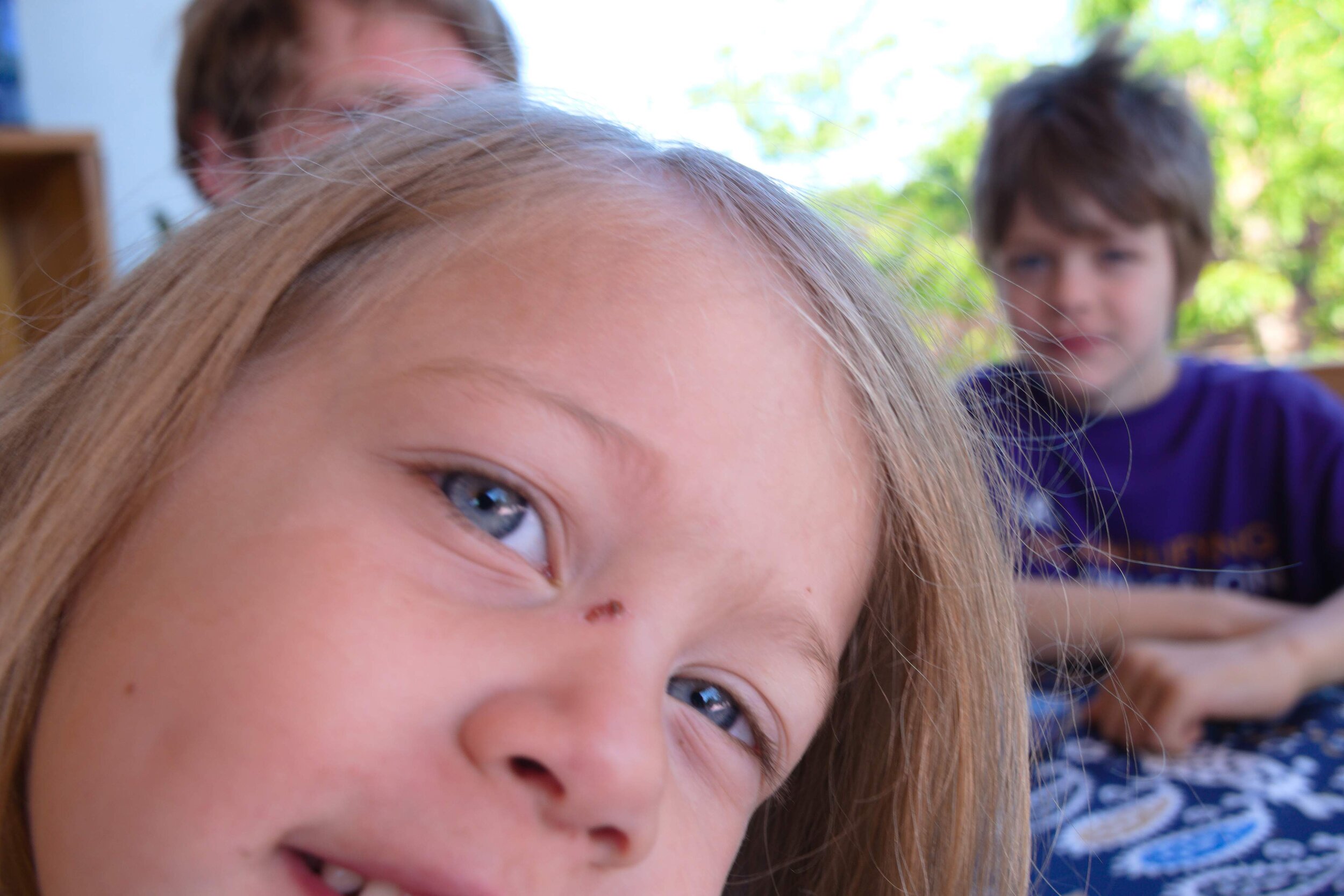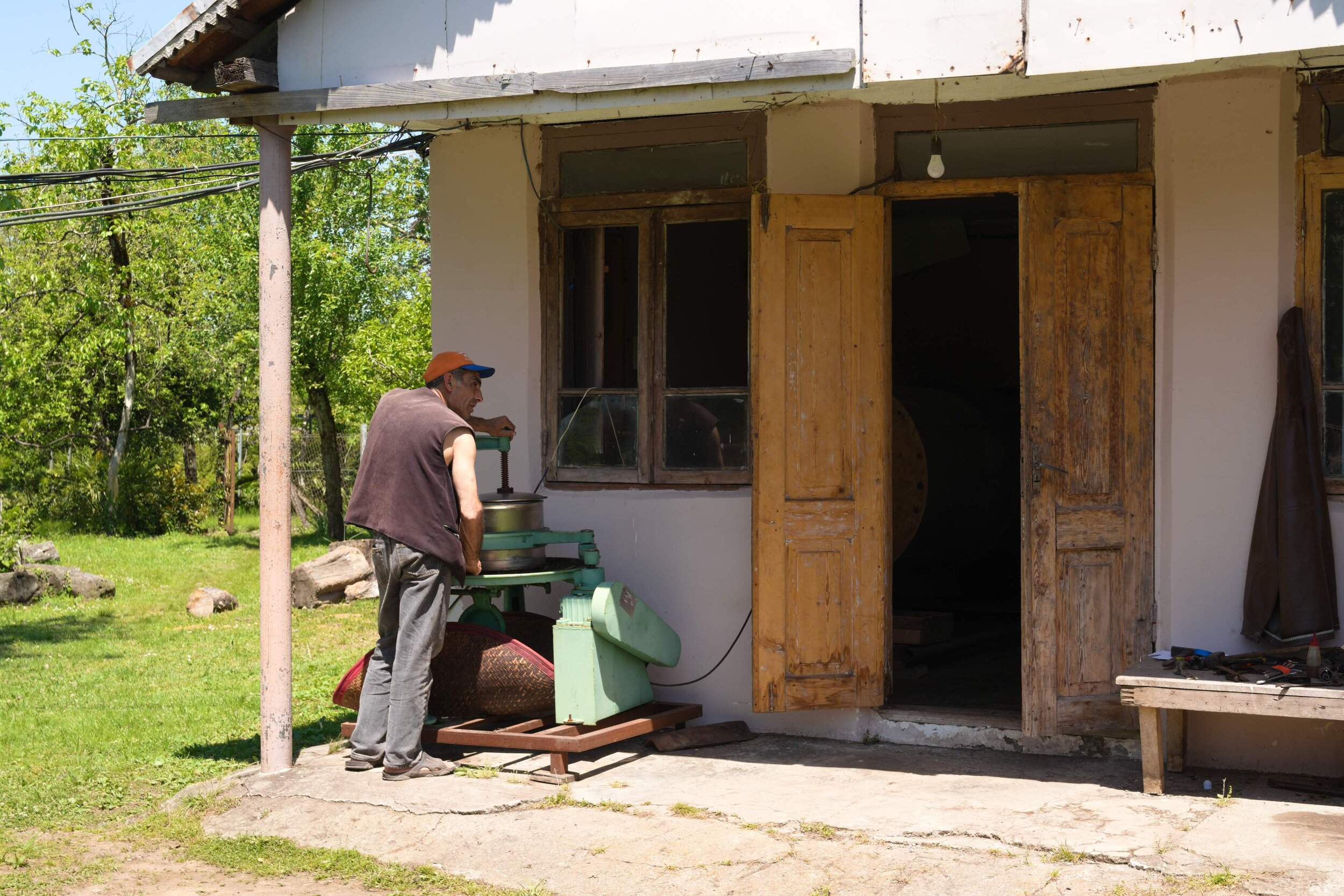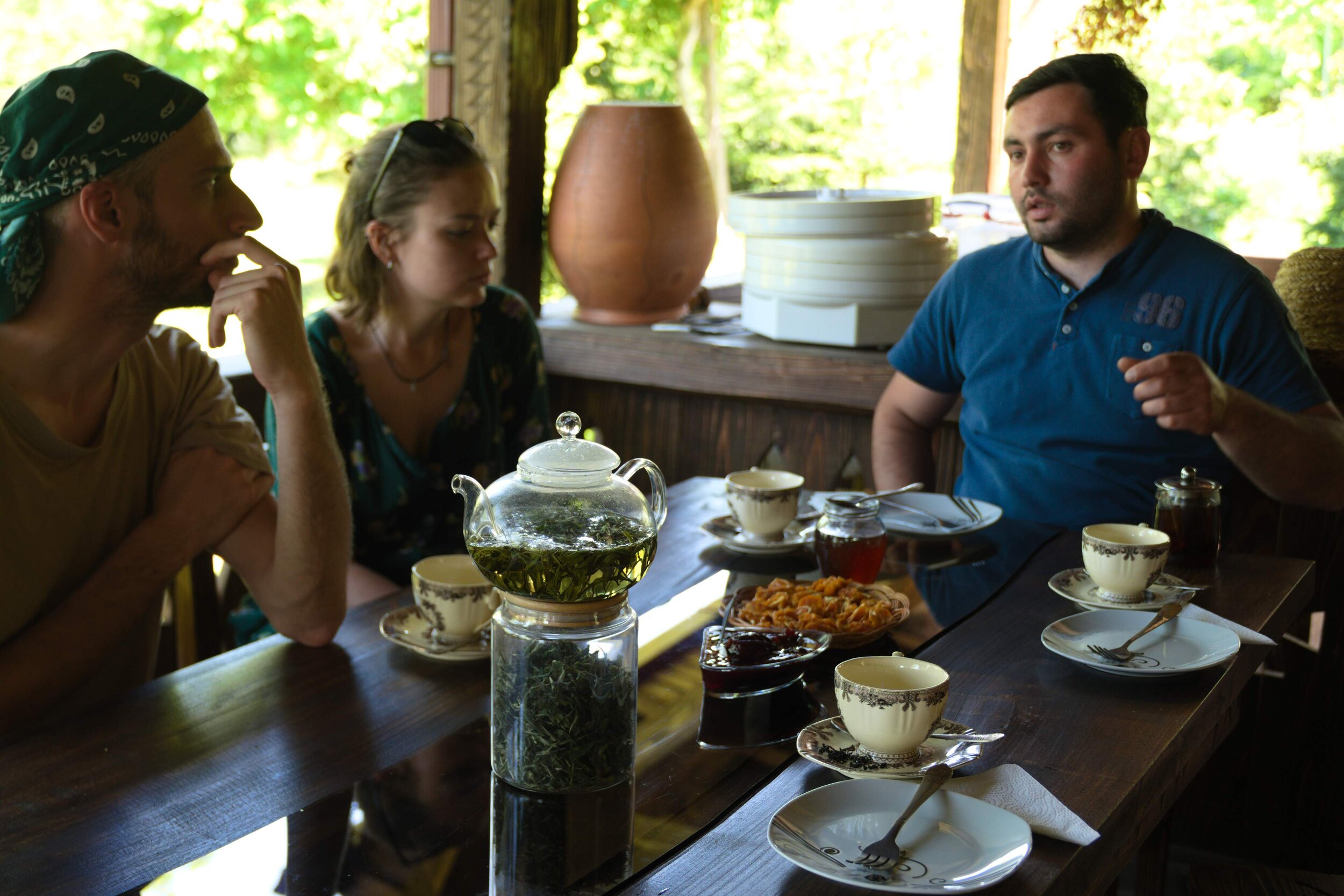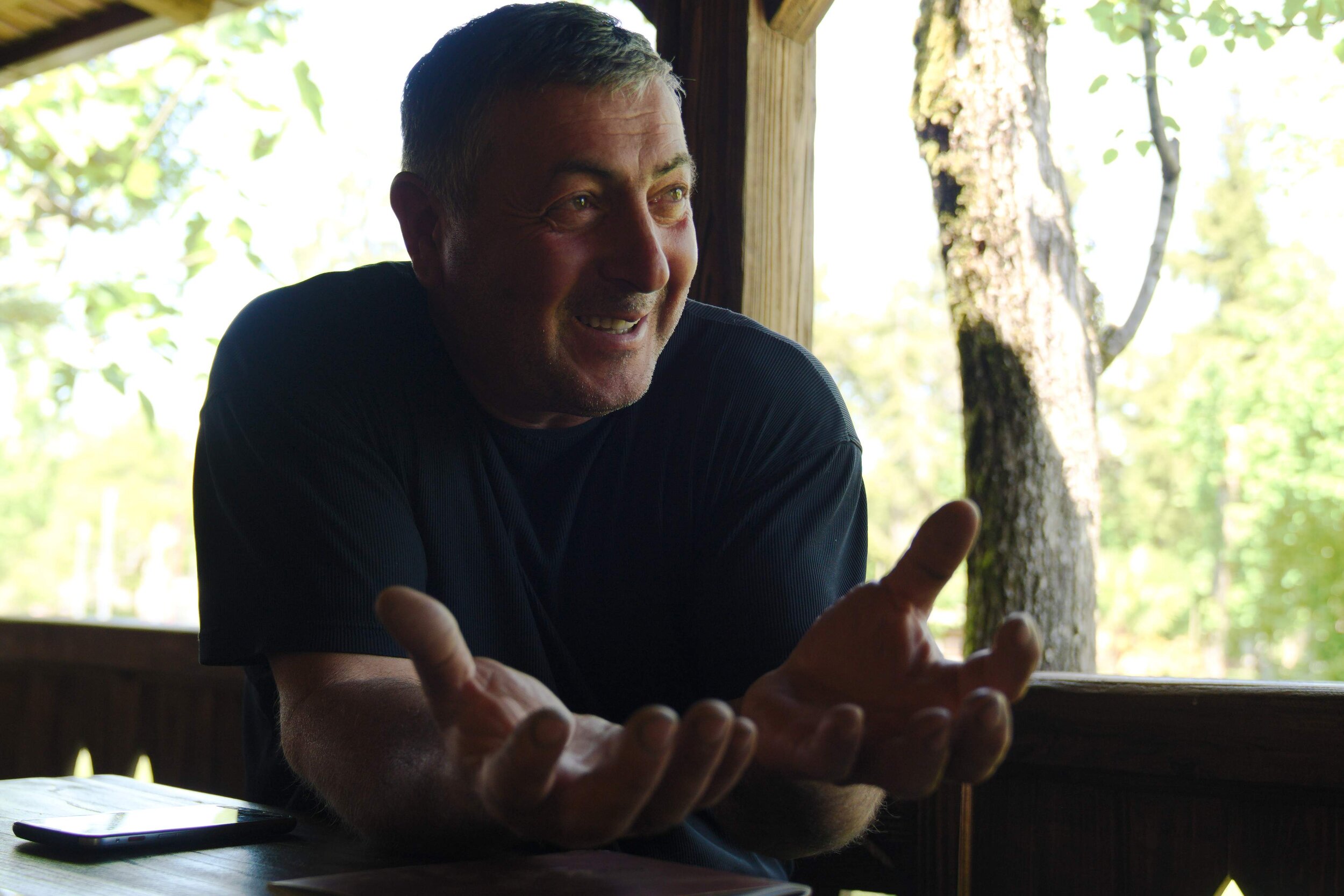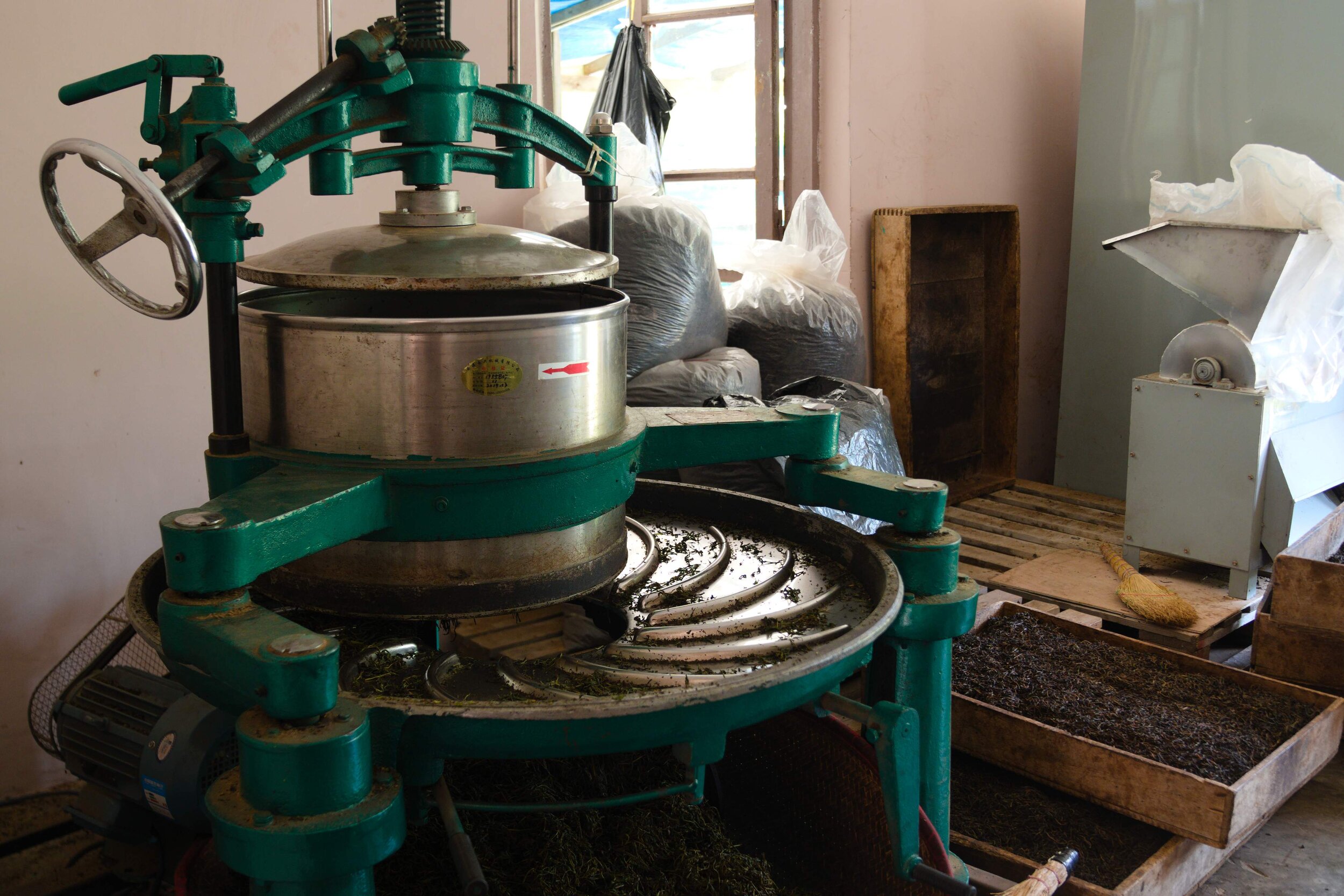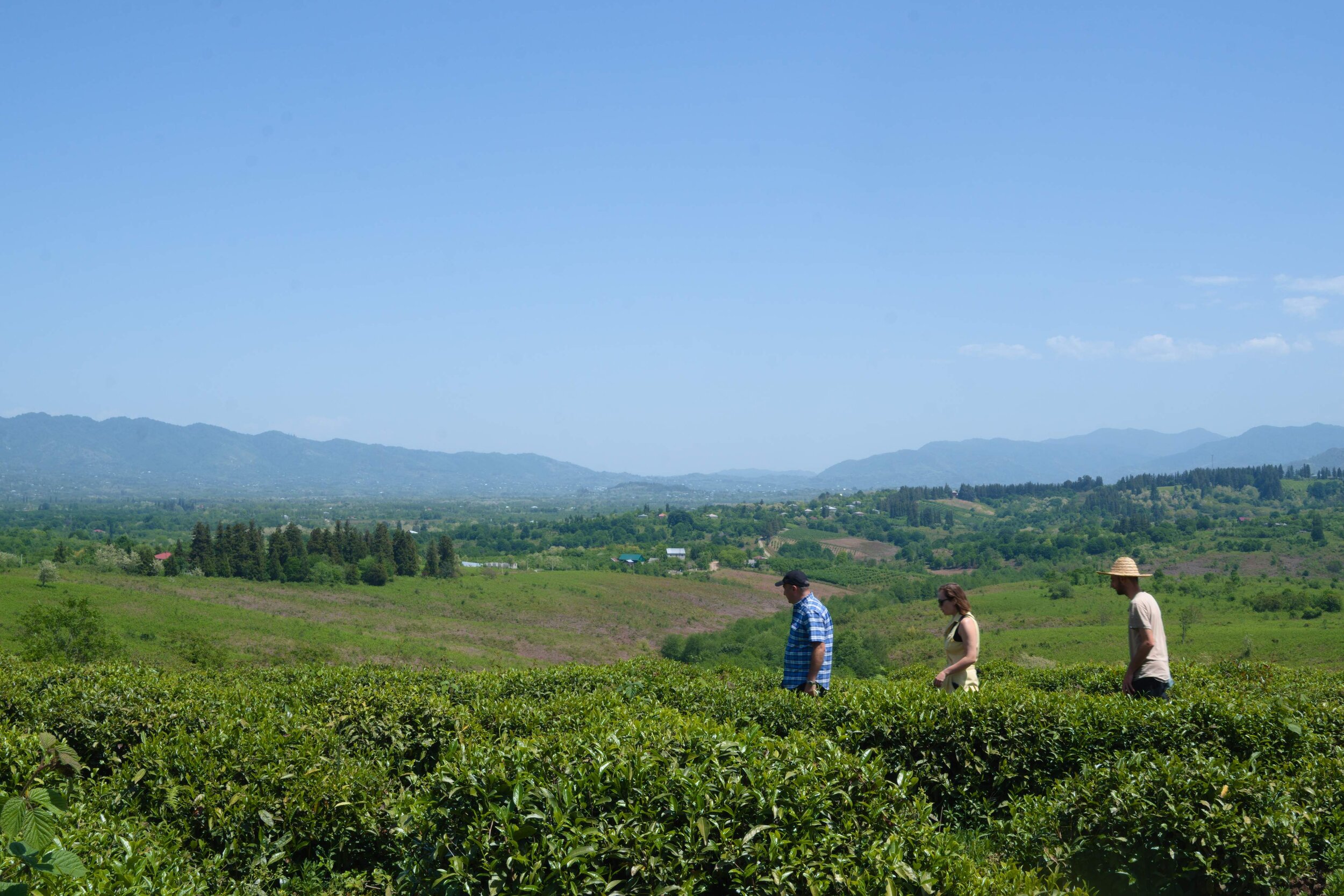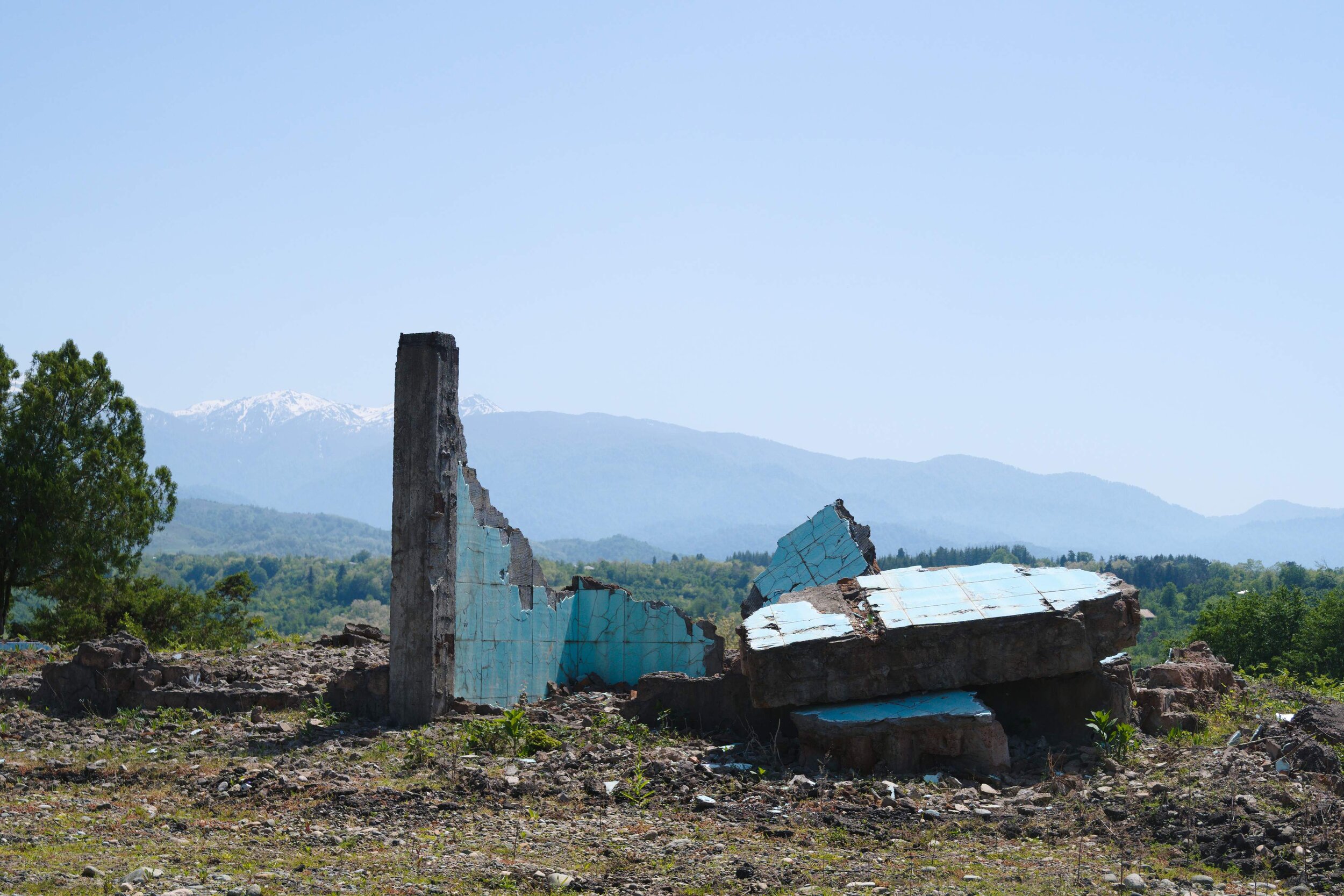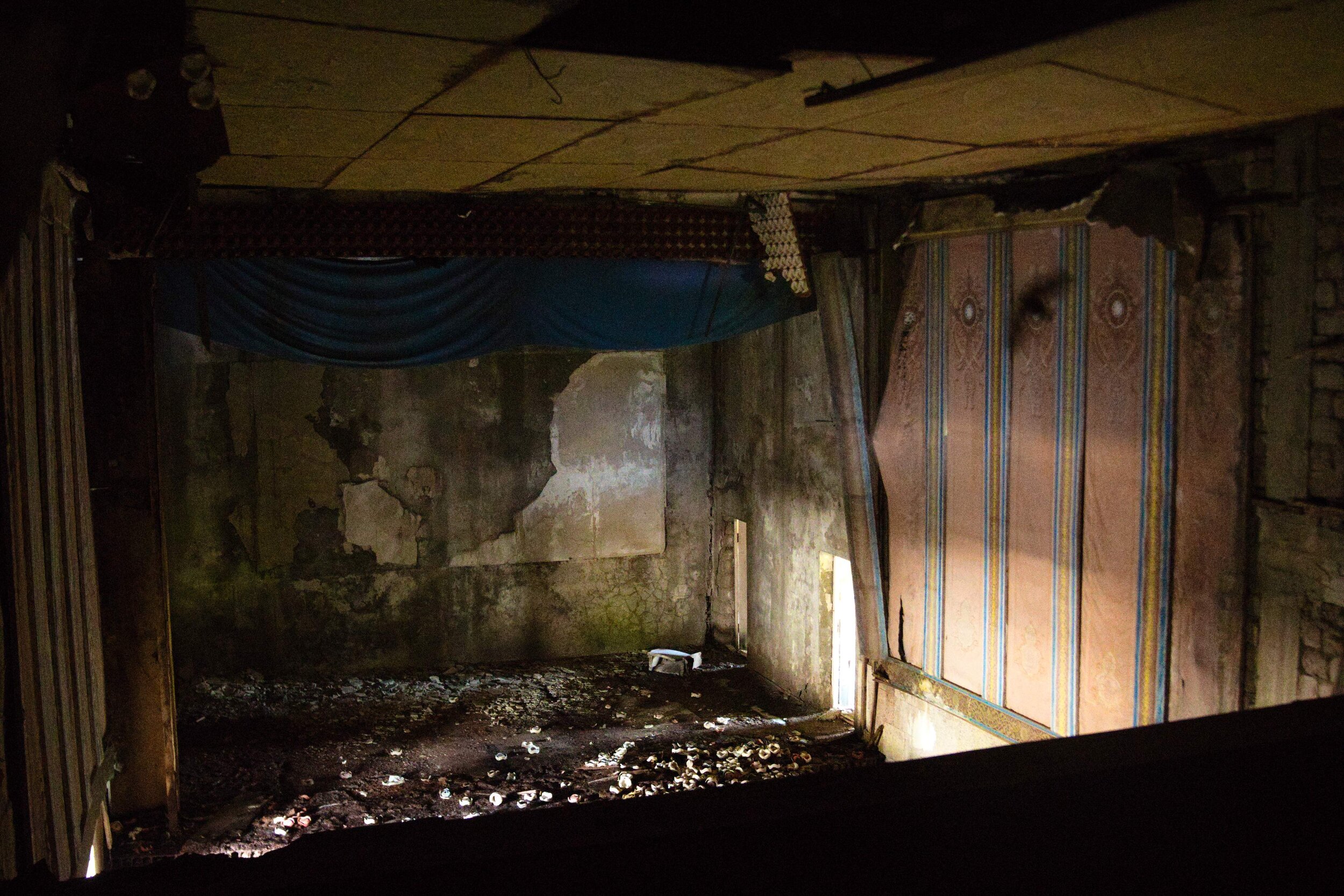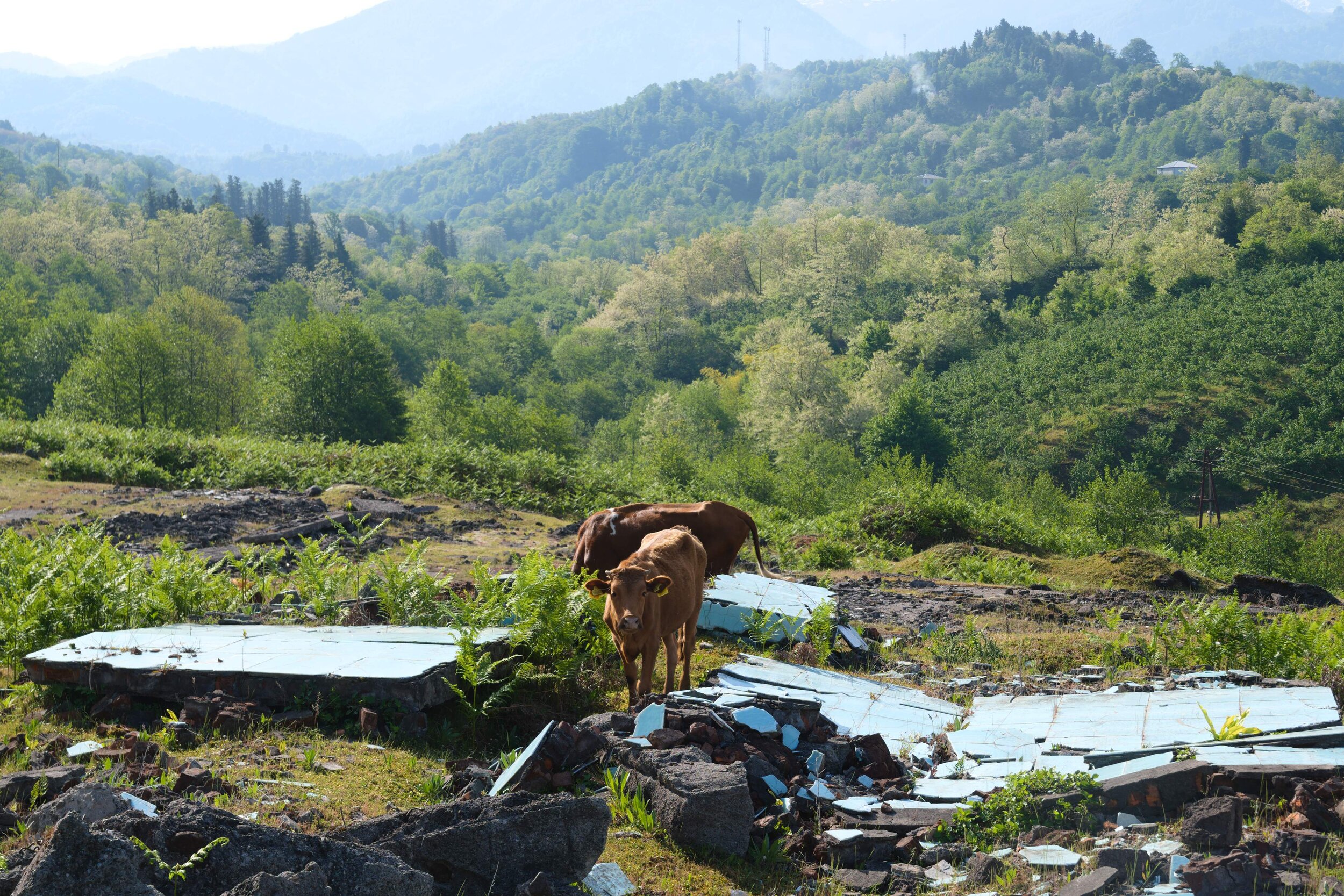Tea Journal part I – a sense of home
Family & home
My favourite place to be during golden hour is beside a river in Georgia. An orange glow floats slowly up the valley and strokes the rocks, casting long shadows across the mosses and grass. Tim, Tom and I had walked to the river from Lika’s home, which she runs as a guesthouse and small tea plantation. You walk past her plump tea bushes and push a little wooden boat across a stream with a long pole, cross through thick hazelnut trees and stumble across a stoney riverside to reach the water’s edge. Komli (which means household in Georgian) very much felt like home for the first few days of our tea trip.
Lika and her daughter Nina’s family played an important role at the beginning of our tea story. Tim has known the family for more than eleven years, having studied with Nina in the States. Lika also happens to be from one of the oldest tea-growing families in Georgia. She proudly shows guests black and white photos of her family over the decades – in the tea fields, studying at agricultural school in Ozurgeti, and lined up for family portraits in front of their house. We shared the long table on the veranda with four generations of her family that week, from her soft-eyed elderly mother to her three inquisitive grandchildren.
Lika is a member of an association of Georgian organic tea producers who work together to promote Georgian tea. She pointed us in the direction of her long-term friend and pioneer of organic tea Dato. We wandered around his plantation under the hot Gurian sun with his son, Gabriel, learning about their history and future plans. Like many of the tea makers we met, they are keen to innovate. Gabriel is growing stevia, a plant that makes a great alternative to sugar in tea. He showed us his kiwi plants.
“Have you tried making tea from these leaves?” Tom asked.
“Yes,” he grinned. “Of course”.
Gabriel and Dato served their teas in glass teapots. This is where you truly see how beautiful tea can be as the leaves unroll and come alive, dancing in the pot. Before long, the table was strewn with plates of dried fruits, steaming khachapuri cheese bread, and bag upon bag of different teas. Dato and Gabriel’s craft was clear – the teas are delicious.
Their tea plantation is one of a handful in Guria, although there once would have been many. The Soviets profited from Georgia’s subtropical mountains, earning the small country the position as the world’s fourth-largest producer of tea. Georgian tea was sold en-masse across the former Eastern Bloc. However, the industry came crashing down along with the iron curtain, unable to survive the country’s economic decline and gangster-led politics.
On the way to Giorgi’s plantations the following day, we passed crumbling blue-tiled walls, surrounded by grazing cattle, that would have been a large tea factory three decades earlier. In the centre of the village, a theatre that would once have entertained its workers, is abandoned and decaying, the balcony level sagging towards the earthy floor.
Growing in neat rows along a hillside and backdropped by the jagged teeth of the Caucasus Mountains, Giorgi’s tea fields reminded us of Georgia’s proximity to Asia. You could easily confuse the scene with China or Sri Lanka.
We went with Giorgi to meet his tea pickers at their home, to weigh the day’s plucked leaves. A group of men and women came to greet us at the gate, carrying woven baskets filled with green tea leaves. Giorgi took out his scales and notebook, calling out numbers to one of the ladies to jot down. I wondered how many generations of these families had worked in the tea fields and what they had done when the jobs disappeared.
We returned to Lika’s with baskets overflowing with tea samples. Noel, her son-in-law, was fanning flames in the outdoor fireplace to cook mtsvadi – Georgian BBQ. Fat dripped over the embers from the skewers flickering yellow flashes through the smoke. Noel runs a business importing Georgian wine to America. Over glasses of homegrown wine and thoughtful toasts, he encouraged us to think about how we want our business to grow and how we, and the world, will grow with it.
Noel fetched a book of poems (Komli is full of wonderful books) by Walt Whitman, an American poet. He read from the Leaves of Grass:
The press of my foot to the earth springs a hundred affections,They scorn the best I can do to relate them.I am enamour'd of growing out-doors,Of men that live among cattle or taste of the ocean or woods,Of the builders and steerers of ships and the wielders of axes andmauls, and the drivers of horses,I can eat and sleep with them week in and week out.What is commonest, cheapest, nearest, easiest, is Me,Me going in for my chances, spending for vast returns,Adorning myself to bestow myself on the first that will take me,Not asking the sky to come down to my good will,Scattering it freely forever.
I lay in bed watching the starlit night and silhouetted mountains from the window of a wine barrel that had been converted into a cosy bedroom. I was excited and daunted at the prospect of creating something that could influence the world more than myself as an individual, excited to be a bridge between these tea makers and my home country. The teammates we met are passionate about reviving the industry hand in hand with the local community and environment.
Wouldn’t it be wonderful if the theatre could be full again.


